
How to Turn Your Phone Into a Wi-Fi Hotspot
If you're stuck in a situation where you need a Wi-Fi connection, but can't get
2023-08-29 04:29
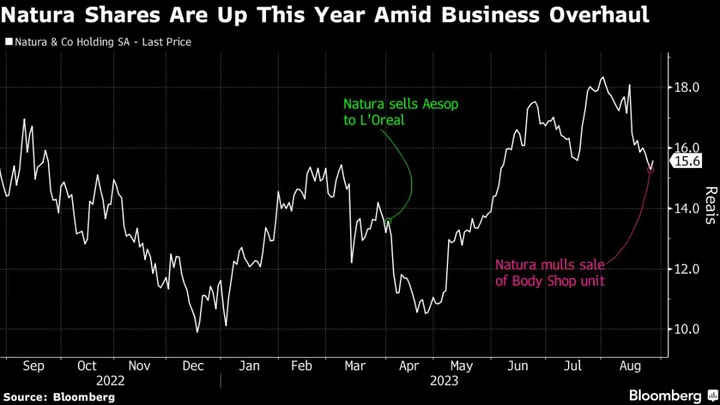
Beauty Giant Natura Weighs Body Shop Sale in Reversal of Global Ambitions
Cosmetics maker Natura &Co Holding SA is considering the sale of its Body Shop unit as it seeks
2023-08-28 23:58

UK Flights Snarled on Bank Holiday After Air-Traffic Failure
UK air traffic experienced significant disruption on Monday following an air-traffic control system outage that caused massive delays
2023-08-28 21:45

Chinese Paper Demands British Museum Return ‘Stolen’ Artifacts
Chinese state media has urged the UK’s most famous museum to return items “stolen” during the colonial era,
2023-08-28 17:53
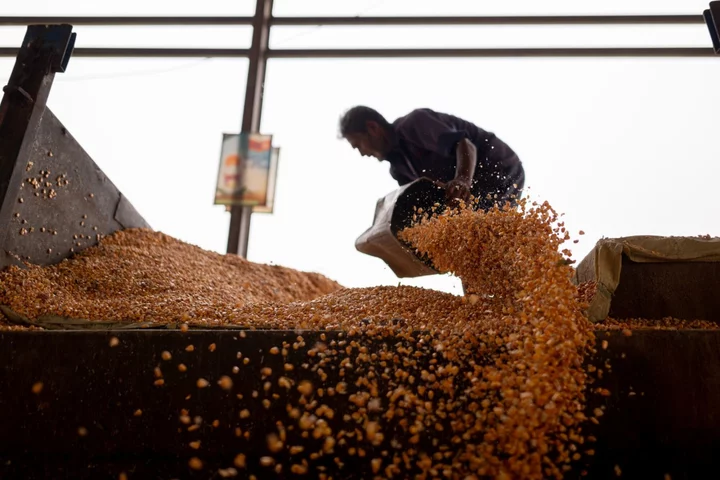
Modi Weighs Continuing Free Grains Program Into Polls
Coming soon: Sign up for the India Edition newsletter by Menaka Doshi – an insider's guide to the
2023-08-28 17:46
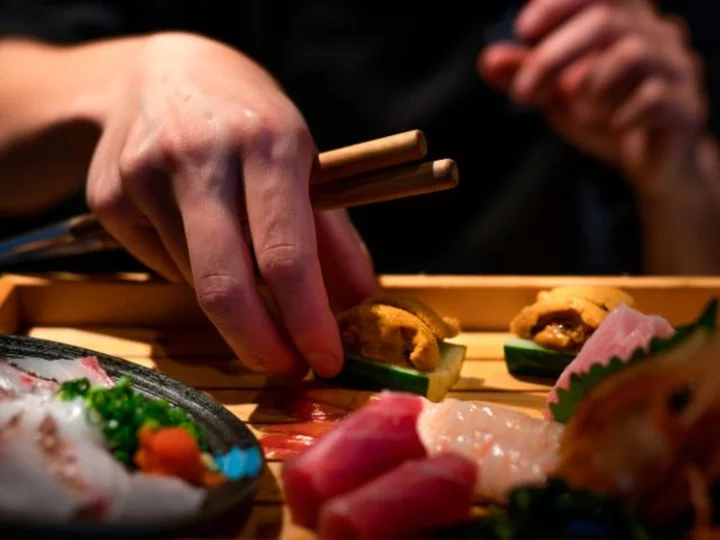
China says its ban on Japanese seafood is about safety. Is it really?
In the busy streets of Hong Kong's Central district the lunchtime queues snake around the swanky Japanese restaurants where high-end sushi can sell at $150 a pop just for a tasting menu.
2023-08-28 09:47

India Further Tightens Rice Shipments in Threat to Global Supply
India, the world’s biggest exporter of rice, imposed more curbs on shipments of the grain in a move
2023-08-27 22:47
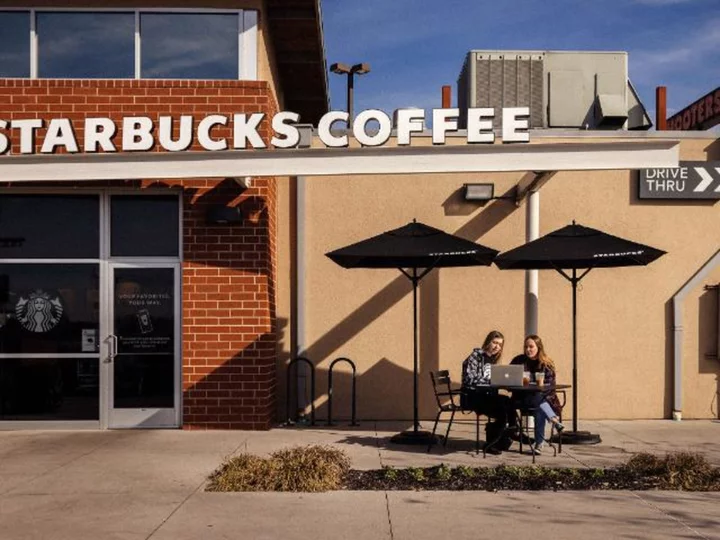
Why do we say tall instead of small? How Starbucks created its own language for ordering coffee
"One tall iced pumpkin cream chai tea latte please," is an order that will soon become a staple at Starbucks stores across the country.
2023-08-27 17:17

Pizza, cake and meringue martinis: When did cinema food get so silly?
As I sit in the dark of Screen 2 at Oxford’s Curzon cinema, a woman a few seats away from me does something I’ve not seen before: she orders pizza. Specifically, she orders £64.85 worth of pizzas and chips for her and her family. A few minutes later – after the film has started, in fact – the food is brought to her, as though she was sitting in any regular restaurant and not in a cinema. Eating at the pictures is becoming ever more sophisticated, with ushers bringing you food as fancy as sushi without you having to move a muscle. Is it getting a bit silly? It’s no secret that cinemas have endured a range of crises over the past few years, partly thanks to the rise of streaming and then the pandemic and even more streaming. Cinemas across the country have shut down and forecasters predict that screens won’t be as full as they were pre-Covid until 2025. Some of the cinemas that survived, like AMC, are saddled with billions of pounds worth of debt. Just showing people films may not cut it in this difficult new era. As they fight to survive, cinemas are having to up their game. They have to offer “experiences”. Christina Flourentzou, operations manager at Curzon, says they learned that customers wanted more food and drink with their film thanks to their feedback service, Feed It Back. This happened before Covid struck, she points out, but post-pandemic the company rolled their restaurants out on a bigger scale. “What we’re trying to do is elevate the guest experience,” she says. “For us it’s about giving the guest the best possible experience; so anything that they want, we can give them, essentially.” At my local Curzon this includes padron peppers, mushroom and truffle croquettes, and vegan hot dogs. What Curzon has discovered, according to Flourentzou, is that when at-seat food and drink service is offered, the spend per customer goes up – often by as much as £2 per person. There is a different mindset when ordering at your seat compared with ordering at the till: “You take your coat off, your hands are free, you look at a menu, suddenly someone comes to you and says, ‘What would you like?’ Your mentality changes.” On any new site Curzon will now endeavour to install tables at seats, in order to allow for this in-screen service. Eating entire meals in your cinema seat is becoming more and more popular but it isn’t a brand-new phenomenon. Studio Movie Grill, born in Texas but with sites in states including California, Florida and Georgia, has been offering at-seat food and drink since 2000. Tearlach Hutcheson, the company’s vice president for film, calls this kind of operation a “cinema eatery”. He agrees that it isn’t just the pandemic that has caused a shift in customer priorities; it’s been happening over the past 20 years as home entertainment systems have become increasingly more sophisticated and cinemas have had to compete. “I think that people are looking for a different experience when they go to the theatres,” he says. “We have to provide a more luxurious catering experience to the guest.” I think the immersion is only going to get more and more. I think that everyone is going to adapt because this is what people want. I don’t think the cinema is enough now ... I don’t think it’s ever going to go back to popcorn and drinks Amy Fernando, creator of Taste Film At Studio Movie Grill, food revenue is more than twice that of ticket sales, and its CEO says that business is better for the company than before the pandemic. In cinemas, profit margins have always been higher on food than on tickets – though these margins are far smaller for cooked food than for popcorn and Coke. The kitchen staff at Studio Movie Grill are often dishing out six meals per minute. A recent innovation was a kitchen printer that printed orders faster than ever before. Servers are allowed to bring food and drink to guests at any point (unlike Curzon, where, Flourentzou says, it should strictly happen during the adverts and trailers) but the bulk of orders are placed within the first 30 minutes of arrival. Studio Movie Grill could represent the future of the cinema-going experience: it might soon be completely normal to bundle the film-and-a-meal experience into one. What Hutcheson is confident about is that cinemas will become more of a “destination spot” in order to entice people to leave the comfort of their homes. Flourentzou doesn’t think I’m right to call it “panic” but it does seem like cinemas are urgently fighting to stay alive. One person who knows all about using food and cinema to create an experience is Amy Fernando, creator of Taste Film, an enterprise that shows films to customers while serving them food featured in those films. Watching Goodfellas in 2016, Fernando was inspired by the infamous shaving garlic scene to marry the two things she cared most about. Seven years later, she has swapped teaching for running the business full-time. “I think the beauty of coming to the cinema, or doing an experience like this, is sharing it with like-minded people,” she says. “Post-Covid there is something special in getting dressed up, going out, and sharing the experience with other people.” When I go to watch Taste Film’s version of Mrs Doubtfire, I agree. I didn’t think of the film as one featuring all that much food but at appropriate moments we are served a savoury birthday muffin; chilli salt and pepper chicken wings; a meringue martini; tiger prawn skewers with chips and salad; a pina colada; and a chilli and chocolate mousse. As Fernando says, the frisson of fun is largely to do with two communal experiences: everyone not just watching the film at the same time but eating the same food at the same time. This won’t be replicable in regular cinemas (a Taste Film ticket is £75, for example) but the company is going from strength to strength, partnering with the big streamers, and its growth is indicative of people’s updated expectations around film. “Guests want more,” says Fernando, “and younger people want more.” Ultimately, of course, it will be the quality of films that govern whether or not cinemas stay afloat. This summer has seen an unusual boom in quality and business, with Barbie and Oppenheimer proving critical darlings as well as excellent earners. But where the cinemas can’t control how good the films are, they can control the various offerings they provide around them. “I think the immersion is only going to get more and more,” says Fernando. “I think that everyone is going to adapt because this is what people want. I don’t think the cinema is enough now.” Hutcheson and Flourentzou agree. Hand in hand with this development, Hutcheson says, will be a resurgence in “purer cinematic experiences” – people wanting to experience cinema with as sophisticated a picture and sound experience as possible. He believes that it won’t be long before cinema eateries – at the moment confined to more modest theatres – will also enter the IMAX space. Look at the signs and it certainly seems as though it will be difficult to put the genie back in the bottle – which means cinemagoers may need to brace themselves for an exciting new range of smells. Fernando is probably right when she says: “I don’t think it’s ever going to go back to popcorn and drinks.” Read More Too gay, too weird, too pregnant: The most controversial Barbie dolls in history Doing things alone isn’t ‘self-love’ – we don’t need to make everything empowering Sizzling kitchen drama The Bear is spicing up the dating game for chefs ‘It started with a radish’: Chef Simon Rogan reflects on restaurant L’Enclume at 20 The true story – and murky history – of Portuguese piri piri oil 30-minute summer recipes for all the family to enjoy
2023-08-27 15:30

This country is finally reopening after Covid. But it still requires a one-week quarantine
North Korea has announced it will allow its citizens living abroad to return home in an easing of its coronavirus-era border controls. But it will still require them to do a one-week quarantine.
2023-08-27 14:15
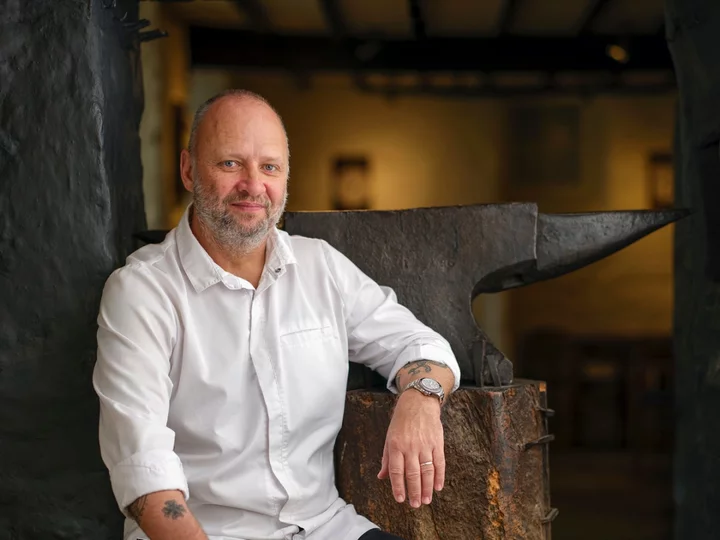
Michelin-starred chef Simon Rogan on 20 years of L’Enclume: ‘It all started with a radish’
In Cartmel, a picture-postcard Cumbrian village on the cusp of the Lake District, chefs in their whites are scurrying across the cobbled streets like an army of well-dressed worker ants. Some are heaving wheelbarrows stacked with mounds of freshly picked vegetables, still earthy from the farm; others are dashing from one building to another, precariously balancing enormous stacks of clean pans. They all have one thing in common: they work for Simon Rogan. If they’re the workers, he’s the queen. This well-rehearsed choreography is a typical sight every morning in Cartmel, where the Michelin-starred chef – one of only eight to own a three-starred restaurant in the UK – set up shop 20 years ago. After a decade of working at various levels in restaurants around the country (including a placement under Marco Pierre White and two years at the three-star Lucas Carton in Paris), Rogan was keen to open his own restaurant. Priced out of Hampshire and Sussex, he looked further afield and found a rundown 800-year-old former smithy in Cartmel available to rent. “I didn’t come here for anything as glamorous as the area or the scenery or the people,” he tells me, having just taken me on a tour of said area to meet said people. “It was just for this building. I was desperate for my own restaurant. I felt like I had never really achieved the things that I’d wanted to working for other people. I wanted to make my own mistakes and be in control of our own destiny. I know it sounds cheesy, but it’s true.” He made an offer on his way back from his first visit to the area, and L’Enclume was born. “Once you realise where you are, you think: s***, this is beautiful,” he adds, laughing. Over the next two decades, the ambitious chef transformed the Cumbrian village into a culinary destination unlike anywhere else in the UK. It’s now home to not only L’Enclume – awarded the environmental green star in 2021 and the coveted third star in last year’s Michelin Guide – but also the one-starred neighbourhood eatery Rogan & Co, and Aulis, L’Enclume’s six-seater chef’s table behind the main restaurant. He also put his name to Henrock, a more informal and relaxed offering just a half hour’s drive away at Linthwaite House, overlooking Lake Windermere. The engine behind this mini empire, and the reason I’m here, is Our Farm, a 12-acre plot in Cartmel that supplies the majority of the restaurants’ ingredients. A sustainable, closed-loop growing operation had always been “at the back of his mind”, Rogan says. He was inspired by his father, a fruit and vegetable salesman who would bring home a box of the day’s best produce, teaching him the importance of using every part of the ingredient. When they arrived in Cartmel to get started, though, “the standard of produce”, Rogan says “was absolutely rubbish. The reason we got into farming was my frustration at the ability to buy a perfect radish, which is the easiest thing in the world to grow.” They rented a small plot close to the restaurant, and filled in the gaps with local suppliers. But, back in 2002, it was too expensive to buy organic. “Things were triple the price they are now,” Rogan tells me, taking a sip of his beetroot juice at the Aulis counter. “So we bought little bits and pieces here and there alongside the normal suppliers. Then we had the opportunity to take over the farm. That’s when we thought: ‘Right, let’s start growing radishes.’” What started as a little garden has become something bigger than he could ever have anticipated. A restaurant growing its own produce is not a groundbreaking concept, but a kitchen garden this is not. You won’t find pristine beds and trimmed rose bushes and arty ornaments. But you will find a patchwork of muddy fields growing hardy vegetables, the topsoil painstakingly “fluffed” by hand; a regiment of polytunnels housing the more finicky plants, delicate micro herbs and other culinary experiments (I try something that tastes like pickled onion Monster Munch); and enormous hand-rotated compost bins that process all the food waste from the restaurants into mulch for the farm. All this is surrounded by hedgerows that have been carefully curated to attract birds and other wildlife to act as natural pesticides. None of this would be possible without head farmer John Rowland. Regenerative agriculture might be his trade, but birds are his true passion. During a tour of the farm, he lists off the species he’s seen circling overhead, drawn by the blackthorn, hawthorn, rowan and birch trees he’s been planting on the borders. “We cater for the birds more than the people,” he tells me, in a Welsh accent so bucolic I wonder whether he’s been shipped in specifically for the tour. “Everything on the farm has a use, and not only in a culinary way. The seeds and the berries attract the birds onto the farm. The birds are my pest control, so the more I can attract to the farm, the more pest control I have, and that is fantastic for birdlife. In Britain, we’ve lost 84 per cent of our bird species, but this area is really rich because of these techniques.” While he might prefer looking upwards, it’s what’s beneath our feet that Rowland is really focused on. “The life is in the soil,” he says, grabbing a great fistful of the stuff. “You have hundreds of types of fungus right here. We don’t want to disturb that biome in the ground so rather than rotavating the soil [breaking up the earth with a machine ready for planting] and destroying the millions of organisms that live in it, we build a six-inch layer of compost on top and aerate it with a fork. Once you’ve done that, each year you just top it off with an inch, and that’s regenerative farming,” he says matter-of-factly, clapping the dirt from his hands. Well, that’s the gist anyway, and while it’s perhaps a little more complicated than that, Rowland struggles to understand why more people aren’t farming in this way. “We’re the most nature-depleted country in the world. We’ve lost our wildflower meadows, we’ve lost our insect population, we’ve lost our wild songbird population. They’ve taken the hedgerows away to make the fields bigger. All the natural food in our countryside is being lost to intensive farming.” Regenerative techniques like those Rowland is putting into practice on Our Farm would go some way to reclaiming it, he says, but “it’s a shame that they don’t realise that”. He pauses for a moment, then corrects himself: “Well, it’s not that they don’t realise it. They know. It’s just that they want intensive farming because it makes them money and it’s wrong because we are killing everything.” How this translates to the table at L’Enclume is manifold. Every dish on the menu begins life on the farm, where Rowland will flag what’s in season and at its best, or suggest something new he’s been experimenting with. Or it might start as an ingredient foraged from the countryside or sourced from a local supplier. The idea is then tweaked in the development kitchen at Aulis, before it finally makes its way to the pass at L’Enclume. This results in a transient snapshot of Cumbrian cuisine that changes every time you dine, and a menu quite unlike anything else I’ve come across. When I visit in February, Boltardy beetroot – a variety chosen for its resistance to erratic weather – shines in a bitesize tart with smoked pike-perch fished locally, and perilla, a Southeast Asian herb cultivated on the farm that adds notes of mint and licorice. Elsewhere, there’s lovage and rose hip and lemon thyme, all foraged; there’s Cornish cod and Mylor prawns and potted shrimp and Maldon oysters; sweetcorn and champagne rhubarb from the farm that were fermented after they were harvested last summer so they could be used year-round; and an enormous selection of British cheeses, including Tunworth, which is frozen and crumbled in a palate-perplexing, salty-sweet dessert. It happens to be my favourite dish. Managing a farm-to-fork operation this complex, not to mention the empire, is no mean feat. “I could pretty confidently be a tax exile given how little I am in the UK at the moment,” he jokes. When we chatted in February, the team was preparing to revive their pre-Covid plan for a five-week residency in Sydney, which concluded this month. The punchline, of course, is the delay meant Aussies were given a taste of not a two-star L’Enclume, but all four stars. Given Australia is yet to receive a Michelin Guide and is not particularly well known for its agricultural sustainability, it was an interesting move, but one there is clearly appetite for. Despite the $420-a-head price tag, it was sold out, serving more than 4,000 diners. While the food at L’Enclume, at home and abroad, is clearly special, it’s the people that set it apart from other restaurants in this league. Their hospitality, affability and, perhaps most noticeably, northern accents, are not typically what you find at this price bracket (£250 a head for the tasting menu, plus £100-£290 for a pairing). Stuffiness is neither present nor tolerated. Many of the staff have been with Rogan since the beginning, switched between the restaurants, or left for pastures new only to return. “We get a lot of people coming back – only the ones we want, anyway,” he says slyly. There’s certainly been a few famous quarrels. The “Rogan alumni” is a term thrown around a lot during my visit, and includes Mark Birchall, who was executive chef at L’Enclume during its two-star era before setting up a curiously similar “restaurant with rooms”, Moor Hall, in Lancashire, which also boasts two stars and a further green. Then there’s Dan Cox, who cut his teeth at Rogan’s now-closed Fera in Claridges as well as L’Enclume, and helped him set up Our Farm in the early days. He’s now down in Cornwall, running the farm-to-table Crocadon. But, generally, people are drawn back to L’Enclume for the variety it has to offer. “Look around the country,” says Rogan, “and [other restaurants] haven’t got any staff because they can’t offer as many career progression opportunities for people. I suppose that makes them lucky. “It’s about not spreading yourself too thin. We’re only able to do these things because these guys are really, really hungry.” Acknowledging that hunger, he established the Simon Rogan Academy in 2021 to “nurture aspiring chefs”. It includes paid work across the Cartmel restaurants, and culminates in a week-long placement at his restaurant Roganic in Hong Kong. In the beginning, “we thought that maybe if we had just a third of them left at the end of the quarter, it’d be brilliant,” Rogan tells me. “But almost all of them stayed on! And now they all want jobs” – he comically rolls his eyes – “but really it’s great.” As I drift between the farm and the Cartmel restaurants, everyone hard at work but always smiling, it strikes me that L’Enclume isn’t just a restaurant; it’s a story. And its influence is immense. “Sustainability”, “farm-to-table” and “regenerative agriculture” were mere whisperings 20 years ago. Now they’re affixed to almost every new menu, and you could say they were born here. The people I’ve met could well be the next batch of Rogan alumni, attracting Michelin’s attention with their own restaurants in years to come. If it takes 20 years to craft a legacy like this, then I’ll make sure I come back in 2043. For more information about L’Enclume, visit www.lenclume.co.uk and for more information about Simon Rogan and his other restaurants visit www.simonrogan.co.uk Read More Why I won’t be doing Veganuary this year – or ever again Marina O’Loughlin is wrong – there’s joy in solo dining Michel Roux Jr announces closure of renowned restaurant Le Gavroche to have ‘better work/life balance’ The true story – and murky history – of Portuguese piri piri oil 30-minute summer recipes for all the family to enjoy What to cook this week: Tomato tart, sweetcorn pasta and other summery suppers
2023-08-27 13:56

Honoring the legacy of game show host and activist Bob Barker
For over thirty years, Bob Barker was known and loved as the host of the hit game show "The Price is Right." He famously ended each episode telling viewers to spay or neuter their pets. Barker spent decades giving his time and money to better the lives of creatures big and small. Here are several organizations you can donate to in honor of Bob Barker's legacy.
2023-08-27 11:49
